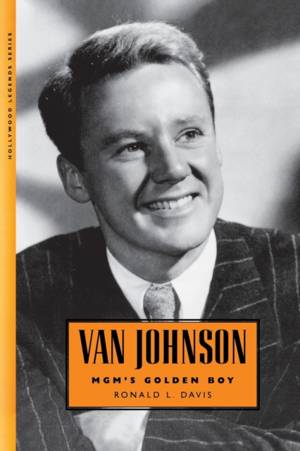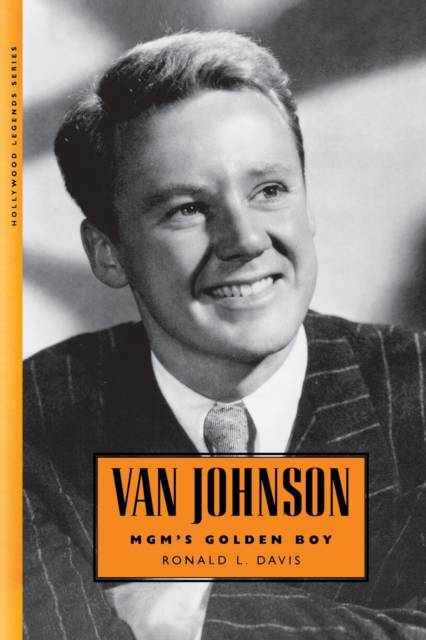
Bedankt voor het vertrouwen het afgelopen jaar! Om jou te bedanken bieden we GRATIS verzending (in België) aan op alles gedurende de hele maand januari.
- Afhalen na 1 uur in een winkel met voorraad
- In januari gratis thuislevering in België
- Ruim aanbod met 7 miljoen producten
Bedankt voor het vertrouwen het afgelopen jaar! Om jou te bedanken bieden we GRATIS verzending (in België) aan op alles gedurende de hele maand januari.
- Afhalen na 1 uur in een winkel met voorraad
- In januari gratis thuislevering in België
- Ruim aanbod met 7 miljoen producten
Zoeken
€ 59,45
+ 118 punten
Omschrijving
Van Johnson's dazzling smile, shock of red hair, and suntanned freckled cheeks made him a movie-star icon. Among teenaged girls in the 1940s he was popularized as the bobbysoxer's heartthrob. He won the nation's heart, too, by appearing in a series of blockbuster war films--A Guy Named Joe, Thirty Seconds Over Tokyo, Weekend at the Waldorf, and Battleground. Perennially a leading man opposite June Allyson, Esther Williams, Judy Garland, and Janet Leigh, he rose to fame radiating the sunshine image Metro-Goldwyn-Mayer chose for him, that of an affable, wholesome boy-next-door. Legions of adoring moviegoers were captivated by this idealized persona that generated huge box-office profits for the studio. However, Johnson's off-screen life was not so sunny. His mother had rejected him in childhood, and he lived his adult life dealing with sexual ambivalence. A marriage was arranged with the ex-wife of his best friend, the actor Keenan Wynn. During the waning years of Hollywood's Golden Age she and Johnson lived amid the glow of Hollywood's A-crowd. Yet their private life was charged with tension and conflict. Although morose and reclusive by nature, Johnson maintained a happy-go-lucky fa�ade even among co-workers, who knew him as a congenial, dedicated professional. Once free of the golden-boy stereotype, he became a respected actor assigned stellar roles in such acclaimed films as State of the Union, Command Decision, The Last Time I Saw Paris, and The Caine Mutiny. With the demise of the big studios, Johnson returned to the stage, where he had begun his career as a song-and-dance man. After this he appeared frequently in television shows, performed in nightclubs, and became the legendary darling of older audiences on the dinner playhouse circuit. Johnson (born in Newport in 1916) has spent his post-Hollywood years living in solitude in New York City. This solid, thoroughly researched biography traces the career and influence of a favorite star and narrates a fascinating, sometimes troubled life story. Ronald L. Davis is the author of Hollywood Beauty: Linda Darnell and the American Dream, John Ford: Hollywood's Old Master, and Duke: The Life and Image of John Wayne. He is a professor of history at Southern Methodist University and the general editor of University Press of Mississippi's Hollywood Legends Series.
Specificaties
Betrokkenen
- Auteur(s):
- Uitgeverij:
Inhoud
- Aantal bladzijden:
- 280
- Taal:
- Engels
- Reeks:
Eigenschappen
- Productcode (EAN):
- 9781496803856
- Verschijningsdatum:
- 6/01/2015
- Uitvoering:
- Paperback
- Formaat:
- Trade paperback (VS)
- Afmetingen:
- 152 mm x 229 mm
- Gewicht:
- 412 g

Alleen bij Standaard Boekhandel
+ 118 punten op je klantenkaart van Standaard Boekhandel
Beoordelingen
We publiceren alleen reviews die voldoen aan de voorwaarden voor reviews. Bekijk onze voorwaarden voor reviews.









